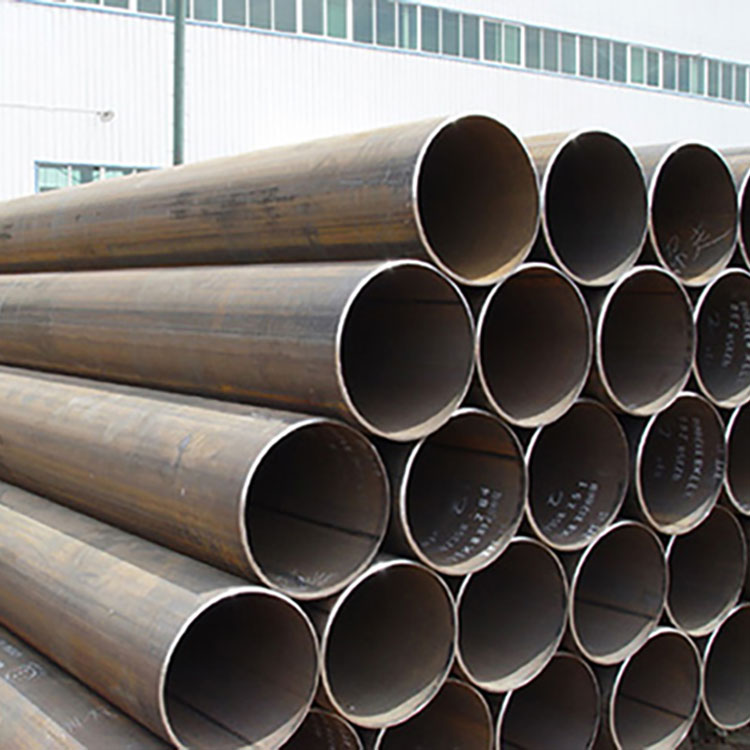Piping Materials Unveiled: Exploring the Distinctions Between Steel, PVC, and Copper Pipes
2023-11-29
Introduction:
In the labyrinth of plumbing systems and infrastructure, the choice of piping material is a critical decision that impacts performance, durability, and even cost-effectiveness. Among the contenders, steel, PVC (polyvinyl chloride), and copper pipes stand as formidable choices, each with its own set of characteristics. Let's embark on a journey to understand how steel pipes differ from their counterparts, PVC and copper, and the unique attributes that make each material suitable for specific applications.
Steel Pipes: The Stalwart Backbone
1. Composition:
- Steel pipes, forged from iron and carbon, form a robust backbone in the world of piping. The addition of alloying elements can further enhance their properties, making them suitable for a range of applications.
2. Strength and Durability:
- Steel pipes boast exceptional strength and durability, capable of withstanding high pressure and external forces. Their resistance to bending and breaking makes them ideal for heavy-duty applications, such as industrial processes and structural frameworks.
3. Corrosion Resistance:
- The inherent corrosion resistance of steel can be further augmented through coatings like galvanization. This feature makes steel pipes a reliable choice for environments prone to corrosion, such as those involving water or chemical transport.
4. High Temperature Resistance:
- Steel pipes exhibit excellent resistance to high temperatures, making them suitable for applications involving hot fluids or gases. Their structural integrity remains intact even in extreme heat, contributing to their versatility.
PVC Pipes: The Versatile Contender
1. Composition:
- PVC pipes are crafted from polyvinyl chloride, a synthetic plastic polymer. This lightweight material is renowned for its versatility and ease of handling.
2. Cost-Effective:
- PVC pipes are often favored for their cost-effectiveness, both in terms of material cost and installation. Their affordability makes them a popular choice for residential plumbing systems and irrigation networks.
3. Corrosion Resistance:
- PVC pipes exhibit excellent corrosion resistance, particularly in comparison to metal pipes. This feature is advantageous in applications where exposure to corrosive substances is minimal.
4. Low Thermal Conductivity:
- PVC's low thermal conductivity means that these pipes do not easily transfer heat. This property can be advantageous in certain applications, especially where insulation from high temperatures is desirable.
Copper Pipes: The Ductile Conductor
1. Composition:
- Copper pipes are crafted from the durable and malleable metal copper. This material is known for its excellent thermal and electrical conductivity.
2. Corrosion Resistance:
- Copper's natural corrosion resistance is a significant advantage in plumbing systems. It is particularly resistant to rust and other forms of corrosion, contributing to the longevity of copper pipes.
3. Formability:
- Copper's malleability allows for easy bending and shaping, making it suitable for intricate plumbing installations. The flexibility of copper pipes minimizes the need for complex joints and fittings.
4. Thermal Conductivity:
- Copper is an excellent conductor of heat. This property is beneficial in applications where the transfer of heat is essential, such as in heating systems.
Key Distinctions Summarized:
1. Material Composition:
- Steel: Iron and carbon, with optional alloying elements.
- PVC: Polyvinyl chloride, a synthetic plastic polymer.
- Copper: Durable and malleable metal.
2. Strength and Durability:
- Steel: Exceptional strength and durability.
- PVC: Suitable for lighter applications.
- Copper: Ductile and durable.
3. Corrosion Resistance:
- Steel: Can be enhanced through coatings like galvanization.
- PVC: Excellent corrosion resistance.
- Copper: Naturally corrosion-resistant.
4. Cost-Effectiveness:
- Steel: Costs vary based on alloy composition.
- PVC: Cost-effective.
- Copper: Moderately expensive.
5. Applications:
- Steel: Heavy-duty industrial applications, structural frameworks.
- PVC: Residential plumbing, irrigation systems.
- Copper: Plumbing systems, heating applications.
Conclusion: Tailoring Choices to Applications
As we navigate the complex web of piping options, the choice between steel, PVC, and copper pipes boils down to the specific needs of the application. Steel pipes offer unyielding strength for heavy-duty tasks, PVC pipes provide cost-effective versatility, and copper pipes blend durability with excellent thermal conductivity. The key lies in understanding the unique attributes of each material and tailoring choices to meet the demands of the project at hand. In the symphony of construction and plumbing, the right choice of piping material orchestrates harmony and durability in the built environment.



